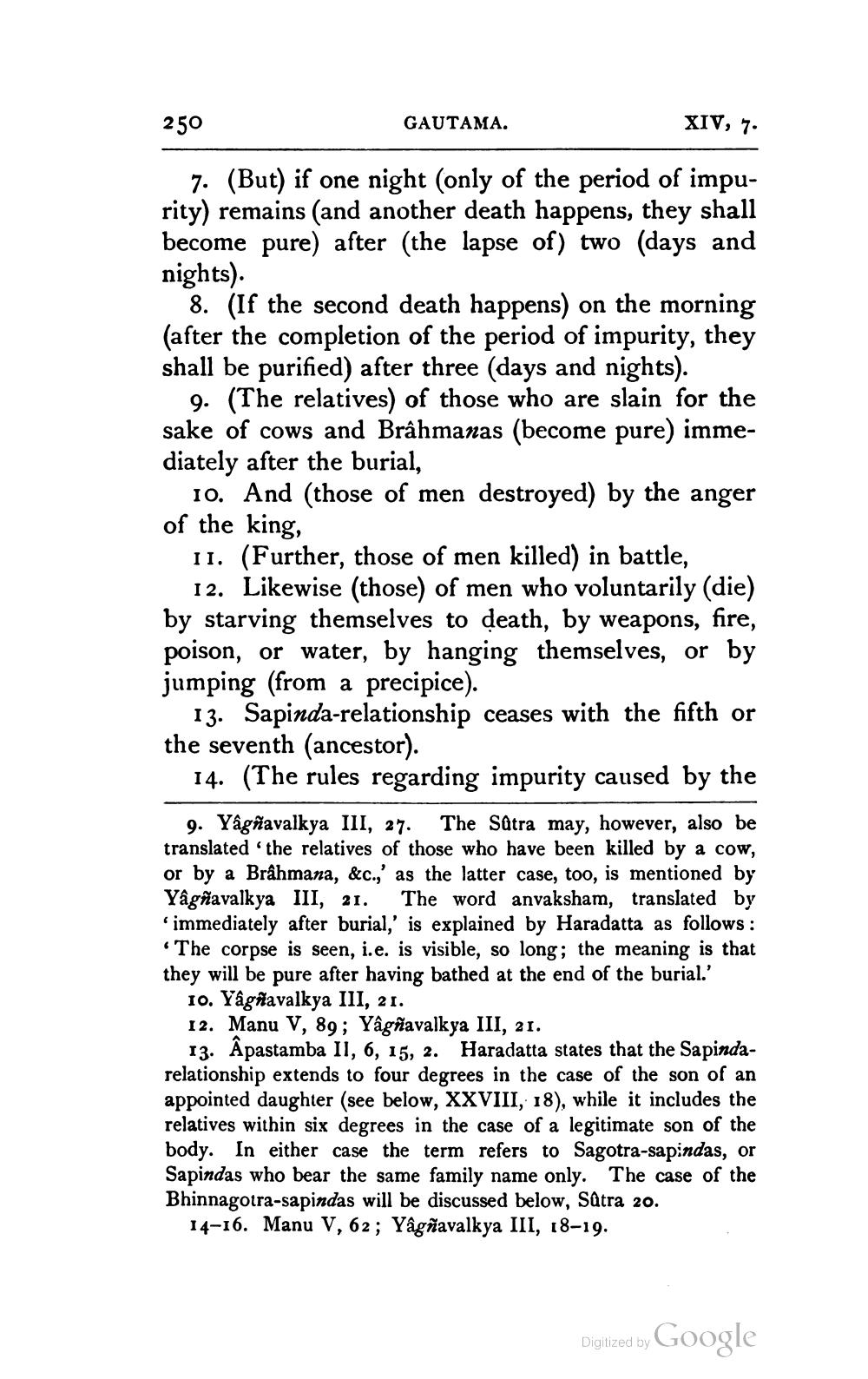________________
250
GAUTAMA.
XIV, 7.
7. (But) if one night (only of the period of impurity) remains (and another death happens, they shall become pure) after (the lapse of) two (days and nights).
8. (If the second death happens) on the morning (after the completion of the period of impurity, they shall be purified) after three (days and nights).
9. (The relatives) of those who are slain for the sake of cows and Brâhmanas (become pure) immediately after the burial,
10. And (those of men destroyed) by the anger of the king,
11. (Further, those of men killed) in battle,
12. Likewise (those) of men who voluntarily (die) by starving themselves to death, by weapons, fire, poison, or water, by hanging themselves, or by jumping (from a precipice).
13. Sapinda-relationship ceases with the fifth or the seventh (ancestor).
14. (The rules regarding impurity caused by the
9. Yâgñavalkya III, 27. The Sätra may, however, also be translated the relatives of those who have been killed by a cow, or by a Brahmana, &c.,' as the latter case, too, is mentioned by Yagñavalkya III, 21. The word anvaksham, translated by immediately after burial,' is explained by Haradatta as follows:
The corpse is seen, i.e. is visible, so long; the meaning is that they will be pure after having bathed at the end of the burial.'
10. Yagñavalkya III, 21. 12. Manu V, 89; Yâgħavalkya III, 21.
13. Âpastamba II, 6, 15, 2. Haradatta states that the Sapindarelationship extends to four degrees in the case of the son of an appointed daughter (see below, XXVIII, 18), while it includes the relatives within six degrees in the case of a legitimate son of the body. In either case the term refers to Sagotra-sapindas, or Sapindas who bear the same family name only. The case of the Bhinnagotra-sapindas will be discussed below, Satra 20.
14-16. Manu V, 62; Yâgñavalkya III, 18-19.
Digitized by Google




